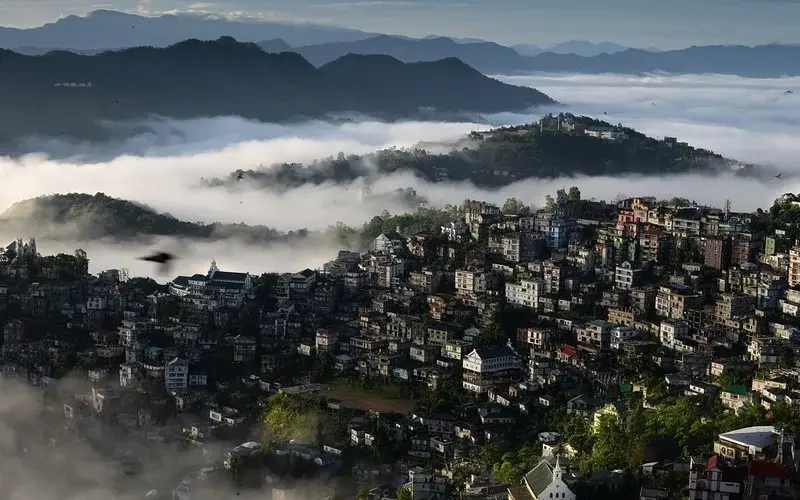


Mizoram, located in India's northeastern region, boasts a rich history. Its roots trace back over 2,000 years, inhabited by indigenous Mizo tribes with unique traditions. During British colonial rule, it was part of Assam, enduring struggles to maintain cultural identity. Post-independence, the Mizo National Front (MNF) led a protracted insurgency for independence, culminating in the Mizoram Accord of 1986, granting autonomy within India. Mizoram officially became a state in 1987. Known for its vibrant tribal culture and lush landscapes, it has evolved into a burgeoning tourist destination, offering scenic beauty, waterfalls, and a glimpse into the intriguing world of Mizo heritage.
Mizoram, located in India's northeastern region, boasts a rich history. Its roots trace back over 2,000 years, inhabited by indigenous Mizo tribes with unique traditions. During British colonial rule, it was part of Assam, enduring struggles to maintain cultural identity. Post-independence, the Mizo National Front (MNF) led a protracted insurgency for independence, culminating in the Mizoram Accord of 1986, granting autonomy within India. Mizoram officially became a state in 1987. Known for its vibrant tribal culture and lush landscapes, it has evolved into a burgeoning tourist destination, offering scenic beauty, waterfalls, and a glimpse into the intriguing world of Mizo heritage.
Location: Mizoram is a northeastern state of India, sharing borders with Myanmar and Bangladesh.
Capital: Aizawl serves as the capital and largest city of Mizoram.
Geography: The state is characterized by lush green hills, dense forests, and numerous rivers and streams.
Indigenous Tribes: The Mizo people, predominantly of Mongoloid descent, are the indigenous inhabitants of Mizoram, known for their distinct cultures and traditions.
Language: Mizo (or Mizo Tawng) is the official language, with English also widely spoken and understood.
Religion: Christianity is the predominant religion, with various denominations represented among the Mizo population.
Economy: Agriculture is the backbone of Mizoram's economy, with crops like rice, maize, and bamboo being significant contributors.
Education: Mizoram has a relatively high literacy rate, with a strong emphasis on education in the state.
Festivals: Chapchar Kut and Mim Kut are among the popular traditional festivals celebrated with great fervor in Mizoram.
Scenic Beauty: The state is renowned for its stunning landscapes, including Dampa Tiger Reserve, Vantawng Falls, and the Lunglei and Champhai districts.
Handicrafts: Mizoram is known for its intricate handwoven textiles, bamboo and cane products, and traditional Mizo attire.